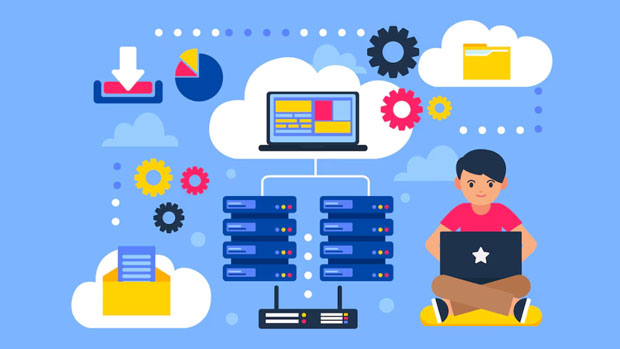In today’s digital age, proxies play a crucial role in enhancing online privacy, providing access to region-locked content, and enabling secure browsing. Hidemyass, one of the most well-known proxy providers, offers a free HTTP proxy service with various country nodes. When choosing a proxy service, latency and price are key factors that users often consider. In this article, we will compare the latency and prices of Hidemyass Free HTTP proxy nodes across different countries, helping users make informed decisions based on their needs. We will explore the performance of proxies from different regions, analyze their speed, and evaluate how prices align with the quality of service. Understanding Proxy Nodes and LatencyProxy nodes refer to servers located in different countries that users can connect to in order to route their internet traffic. The location of these proxy nodes directly impacts the speed and reliability of the connection. Latency, in particular, measures the time it takes for data to travel from the user's device to the proxy server and back. Lower latency indicates a faster connection, which is crucial for tasks that require real-time communication, such as video streaming, gaming, and browsing.When selecting a proxy node, users should consider not only latency but also the location of the proxy. Different countries and regions may experience varying network conditions and infrastructures, which can significantly affect latency. Therefore, understanding how latency varies across Hidemyass’s free proxy nodes is essential for users to optimize their experience.Price Comparison of Hidemyass Free HTTP Proxy NodesHidemyass offers a free proxy service with the option to connect to different countries. Although the free version may have limitations in terms of the number of available nodes and speed, it is still a useful tool for casual browsing and online anonymity. The service offers nodes in various countries, and the pricing model is quite simple: the free proxy service comes at no cost, but there may be restrictions on the number of available countries or access to premium nodes.For users who are interested in higher-quality service, Hidemyass also offers paid versions with faster speeds and access to a wider range of servers. However, this article will focus on the free service, which provides a limited set of nodes with varying performance characteristics.Latency and Price Comparison by CountryThe performance of free HTTP proxy nodes varies significantly depending on the country or region. Below is a comparison of the latency and price considerations for various countries available through the Hidemyass Free HTTP proxy service.United StatesThe United States is a popular location for proxy nodes due to its well-developed internet infrastructure. Users connecting to proxy nodes in the U.S. generally experience low latency, making it ideal for activities that require real-time responsiveness. The average latency for U.S. nodes is around 40-70 milliseconds, which is considered excellent for most online tasks, including streaming, browsing, and gaming.Price-wise, the U.S. nodes are available for free, but users should be aware that the free service might restrict access during peak times. For those looking for more stable and faster connections, upgrading to a paid version might be necessary.United KingdomThe United Kingdom is another popular location for proxy nodes due to its proximity to many European countries and its strong internet infrastructure. Latency for the U.K. nodes is typically around 50-90 milliseconds, which is still acceptable for most online activities. However, users in other parts of Europe might find slightly better performance with a U.K. proxy.In terms of price, the U.K. nodes are also available for free, although like the U.S. nodes, they may be subject to slowdowns during high traffic periods. For users seeking consistent performance, paid options might provide better service.GermanyGermany’s robust internet infrastructure makes it a favorable choice for proxy nodes. Latency is generally in the range of 60-100 milliseconds, which is slightly higher than the U.S. and U.K. nodes but still acceptable for most purposes. Germany is a good choice for users located in central Europe or those who require anonymity in that region.The price of accessing German proxy nodes remains free, though, as with other free nodes, performance may degrade during periods of high usage.FranceFrance offers proxy nodes with latency ranging from 80-120 milliseconds, which may be slightly higher compared to the U.S. and U.K. nodes. While this latency is acceptable for most browsing tasks, users might experience some delays during high-demand activities, such as streaming or gaming.As with the other nodes mentioned, the French nodes are available for free, but users should expect potential slowdowns during peak times.CanadaCanada’s proxy nodes provide latency in the range of 60-110 milliseconds, which is relatively low for North American users. This makes Canada an excellent choice for users in the U.S. and nearby regions looking for stable, fast connections. However, users from overseas may experience higher latency when connecting to Canadian nodes.The Canadian nodes are available free of charge, with the same limitations as other free nodes during high-traffic times.AustraliaAustralia, due to its geographical distance from other major internet hubs, often experiences higher latency for proxy connections. Latency for Australian nodes is typically in the range of 100-150 milliseconds, making it less suitable for latency-sensitive activities such as online gaming or real-time communication.Despite the higher latency, Australian proxy nodes are free to use, and they are a good choice for users who need to access content specifically available in Australia.Asia and Other RegionsAsian countries such as Japan, Singapore, and Hong Kong also offer proxy nodes through the free service. These regions typically have lower latency compared to Australia, with latencies ranging from 40-90 milliseconds. Japan and Singapore are particularly popular for their excellent internet infrastructure, which makes them ideal for users in Asia-Pacific regions.Latency in regions such as India or Southeast Asia may vary significantly depending on the network conditions. Latency in these areas can range from 90-150 milliseconds, which can result in slower browsing and streaming speeds.ConclusionIn conclusion, Hidemyass Free HTTP proxy nodes offer a variety of performance levels across different countries. Latency and price considerations play a significant role in choosing the right proxy for specific needs. U.S., U.K., and German nodes tend to offer the best balance of low latency and accessibility, while countries in Asia, Australia, and other regions may present higher latency. While the free version provides access to several proxy nodes, users may need to upgrade to a paid version for a more consistent and faster connection. Understanding the latency and price differences across these regions will help users make the most of the Hidemyass Free HTTP proxy service based on their individual requirements.
Jul 24, 2025



































































